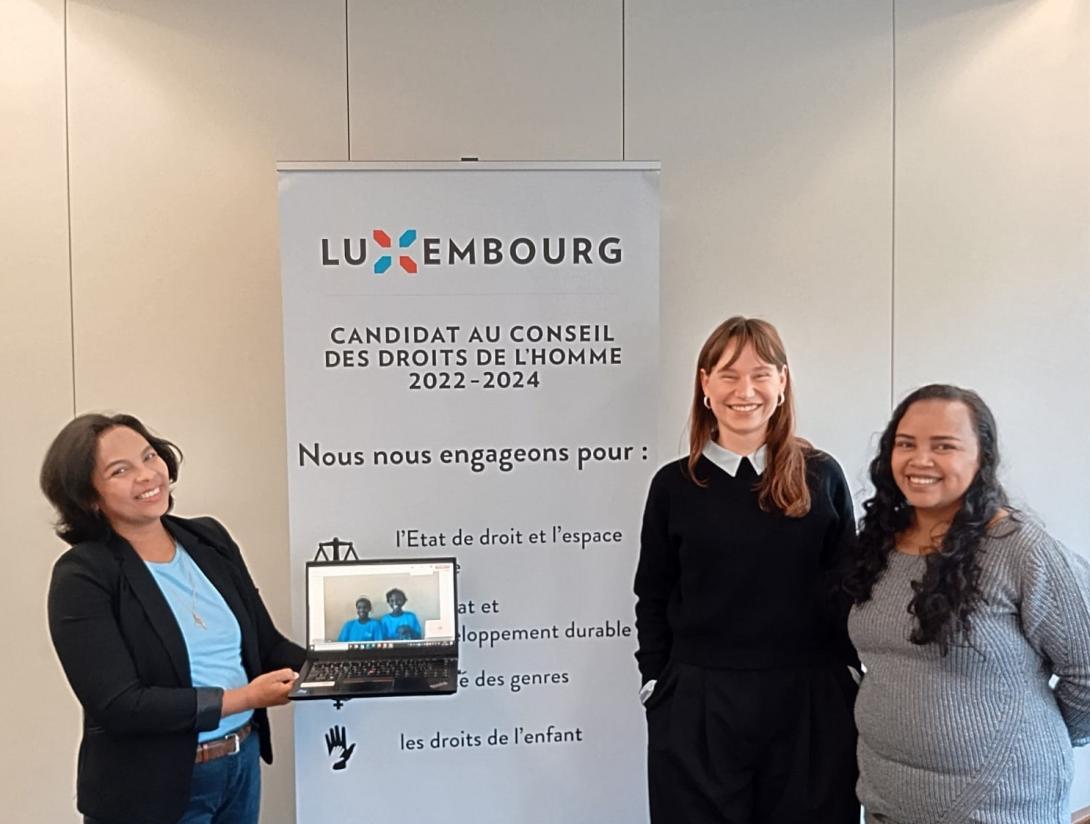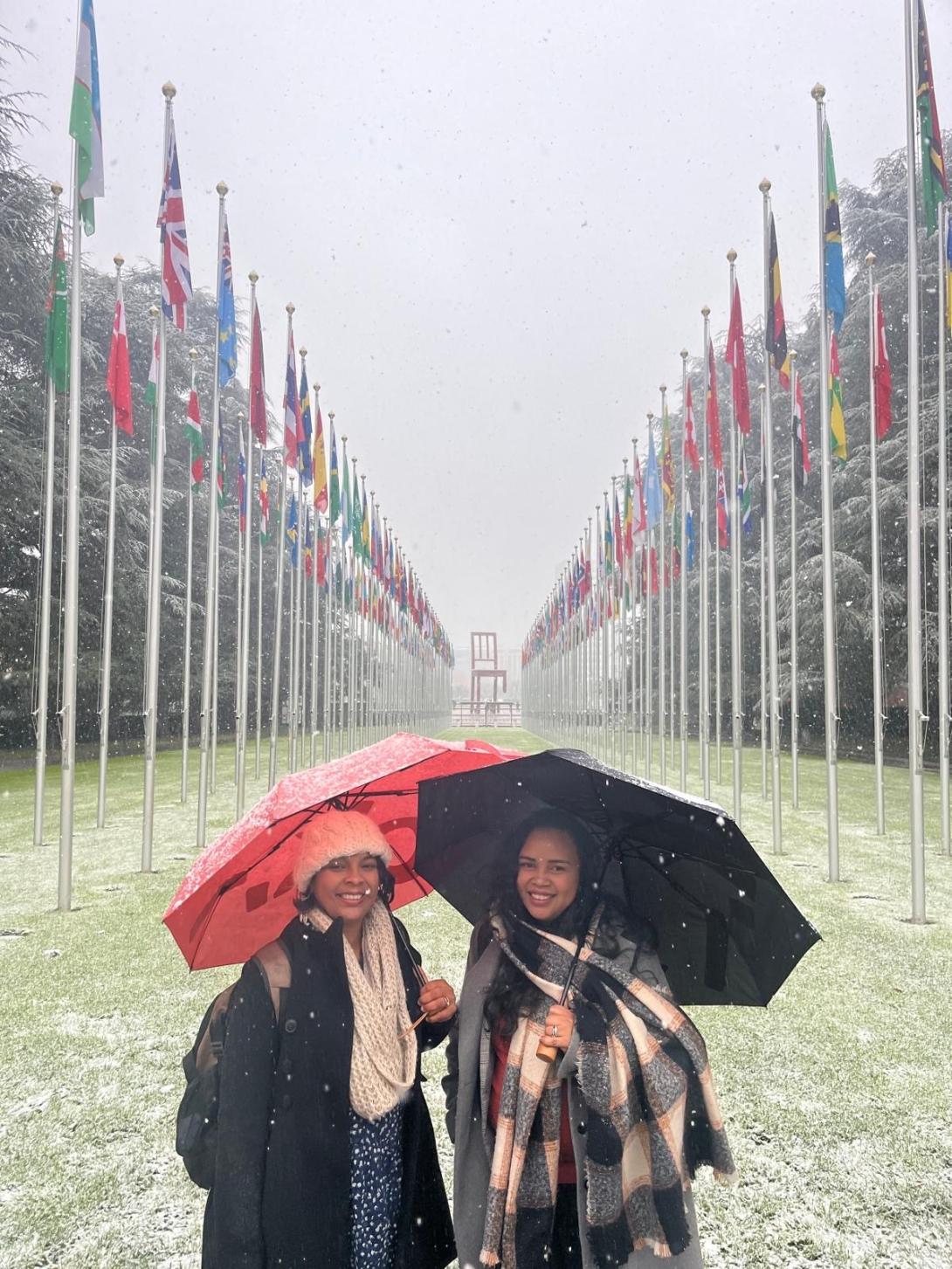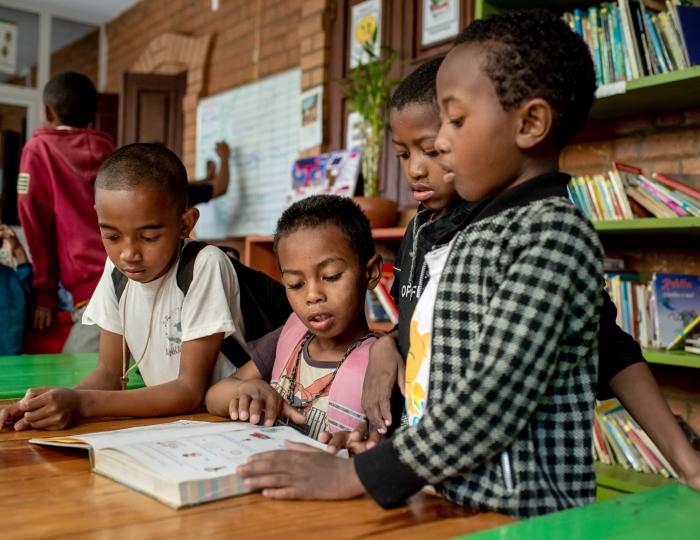


Last week, we welcomed our local partner from Madagascar, the Plateforme de la Société Civile pour l’Enfance (PFSCE), in the context of the Universal Periodic Review* pre-session of Madagascar. Sarobidy and Olivier, two adolescents supported by PFSCE, were expected to come to Geneva to give a speech to the diplomats. Unfortunately, due to a visa refusal, they were unable to attend. As a result, the vice-president of the Plateforme made their voices heard at the United Nations by reading out the speech prepared by Sarobidy the pre-session of Madagascar. It was an emotional moment, let us tell you more!
“I’m Sarobidy, a child representative from Madagascar. Supported by our educators and the organisations defending our rights, we have worked hard to share our vision, our challenges and our hopes with you. What we are telling you is based on our own experiences and those of our friends”
Extract from Sarobidy’s speech
The PFSCE is one of the largest national networks dedicated to the protection of children and children’s rights in Madagascar. Ahead of UPR of Madagascar, the PFSCE and the children’s Committee submitted two reports to the United Nations about children’s rights in Madagascar, in preparation for the civil society pre-session.
The first report was developed up by the children’s Committee, made up of 20 children for a 2-year term and supported by the PFSCE. The second report was developed by the PFSCE in collaboration with civil society. The children’s Committee report contains the testimonies of more than 705 children who were consulted about their rights and some of the issues they face around the rights to health and education, child labour, violence, children without parental support, children in conflict with the law, children in street situations and children with disabilities.
Despite their absence in person, Olivier and Sarobidy, members of the children’s Committee, were able to take part in hybrid meetings with diplomats, where they had the opportunity to talk about the reality of children’s lives and present their recommendations for the Malagasy government.
The reality of children in Madagascar
The rights of children in street situations are not guaranteed nor implemented in Madagascar. Many children have no official identity, which also prevents them from attending school. Furthermore, these schools are in areas that are difficult for Malagasy children to access. Their right to health is often violated by daily malnutrition and the lack of social protection. As a result, they are forced to work and/or beg and/or live in street situations every day.
Children in street situations are often discriminated due to their appearance, financial situation or skin colour. These children are excluded, marginalised and subjected to various forms of stigma by their society. These children are generally demeaned, despised and excluded from the community.
“We have the impression that nobody really cares about our protection. That must change.”
Extract from Sarobidy’s speech
These children do not have access to their right to protection, due to the absence or insufficient number of adequate infrastructures for their care. Rape, attempted rape, sexual abuse, extortion, theft, assault and injuries are the typical forms of violence suffered by children in street situations.
During the last UPR cycle in 2019, the Malagasy government accepted the recommendation inviting the State to pursue an accelerated policy on birth registration and certificate systems. It also accepted that birth registration should be free and accessible to all. Even now, however, around 40% of children remain unregistered. Without a civil person responsible for their situation, these children are unable to register with their government, which delays and prevents access to an education that could get them out of this precarious situation.
“These children are ghosts, without an identity they have no access to anything”.
Testifies the vice-president of the PFSCE.
The example of Sarobidy, who comes from a family that has lived in street situations for generations, is a perfect illustration of the obstacles faced by many vulnerable children who, without any identity, find themselves deprived of many fundamental rights such as their right to participate in their advocacy.
The Malagasy government must recognise the many challenges faced by children, particularly those in street situations.
“Dear diplomats, today we are the voices of the children of Madagascar. We know that you have the power to change things. We believe that if we work together, we can build a future where every child can go to school, get enough to eat, receive the care they need, and be protected from violence.”
Extract from Sarobidy’s speech.
We hope that at the UPR session of Madagascar in January 2025, the concerns presented by civil society, as well as those of children, will be considered in the recommendations that will be addressed to the government by the representatives of the other States. It is crucial that the Malagasy government then takes concrete steps to implement the recommendations it receives, to guarantee the fundamental rights of all children in Madagascar.
*UPR: This is a mechanism that enables the UN Human Rights Council to examine the situation of human rights in each UN Member State. It is a peer-to-peer review mechanism, so it is the States themselves that make recommendations to the State under review to improve the implementation of these rights.
